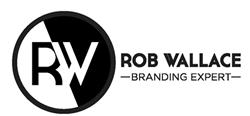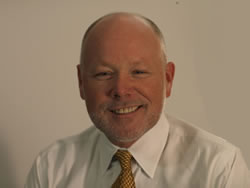Business consultants
*Enter State Names or Abbreviations. Use space to separate multiple states e.g. CA Washington NY
Focus Groups Consultants: 2
Parent Category:
Education Consultant Virginia Rhodes
Virginia Rhodes, Ed.D
CEO/Chief Consultant
1549 Wittlou Ave.
Cincinnati OH
45224
USA
phone: 513-207-2566

Virginia Rhodes, EdD has over 35 years experience in Urban School District Policy, School Development, Administration and Teaching. Dr. Rhodes' specialties include persistently failing city schools, new school start-ups, intentional school design
Consulting Focus:
- District and individual school strategy for equity
- Replacing factory model district & school structures with highly engaging models
- Replacing punitive discipline with developmental systems
- *STEM start-ups and environmental school design
- Innovative teacher hiring, and teacher-led school models, including in districts with collective bargaining
- Replacing toxic district or school culture with human-friendly models
- Effective school security and safety--beyond electronics to the human side
- Collaborating with community grassroots organizing partners
Background - Dr. Rhodes has provided consulting services to an international firm on certain aspects of U.S. public school practices prior to their exploration of a related market sector. She acted as a consultant to the University of Cincinnati Career Center assisting in the development of pre-service teacher hiring expectations. Dr. Rhodes was retained by Cincinnati Children’s Hospital Medical Center to co-investigate a study for mental health and achievement factors related to excessive student mobility.
As a consultant on AdvancedEd School Accreditation Teams, she has evaluated high school performance. Dr. Rhodes has researched and written numerous articles on school mobility, achievement, culture, and STEM (NSF). She has conducted numerous training workshops and spoken on urban school district policy and other related topics to various community groups and national educational organizations.
Brand Imagery Consultant Rob Wallace
Rob Wallace
Branding Consultant
330 East 48 St
New York NY
10017
USA
phone: 917-860-0319

 Rob Wallace has unique expertise in Trademark, Trade Dress, Copyright, Brand Identity and Package Design Infringement. For 30+ years, Rob ran one of the nation's top Brand Identity Strategy and Package Design Resources providing global branding expertise to Fortune 500 companies in virtually all CPG categories. His clients include P&G, Nestle, Pepsico, Unilever, Kraft, Colgate, The Home Depot, Brown-Foreman, Novartis, J&J and more than 30 market leading companies. Manhattan-based, Rob has been an expert witness for important litigation involving:
Rob Wallace has unique expertise in Trademark, Trade Dress, Copyright, Brand Identity and Package Design Infringement. For 30+ years, Rob ran one of the nation's top Brand Identity Strategy and Package Design Resources providing global branding expertise to Fortune 500 companies in virtually all CPG categories. His clients include P&G, Nestle, Pepsico, Unilever, Kraft, Colgate, The Home Depot, Brown-Foreman, Novartis, J&J and more than 30 market leading companies. Manhattan-based, Rob has been an expert witness for important litigation involving:
- Likelihood of Consumer Confusion, Brand Valuation & Dilution
- Innovation/Ideation Copyright
- Package Graphic/Structural Design
- Product Design
- Branding Industry Best Practices
- False Advertising
- Corrective Advertising
- and all brand related issues.
Rob has commissioned literally hundreds of consumer surveys and is uniquely qualified to determine the results of all research. He has worked for attorneys on both the plaintiff and defense sides of his cases. He is effective and efficient with the average project report requiring between 10 and 12 hours.
Featured resources
by Errold F. Moody
by Michael Wakshull
by James A. Jacobs, et al
Follow us









